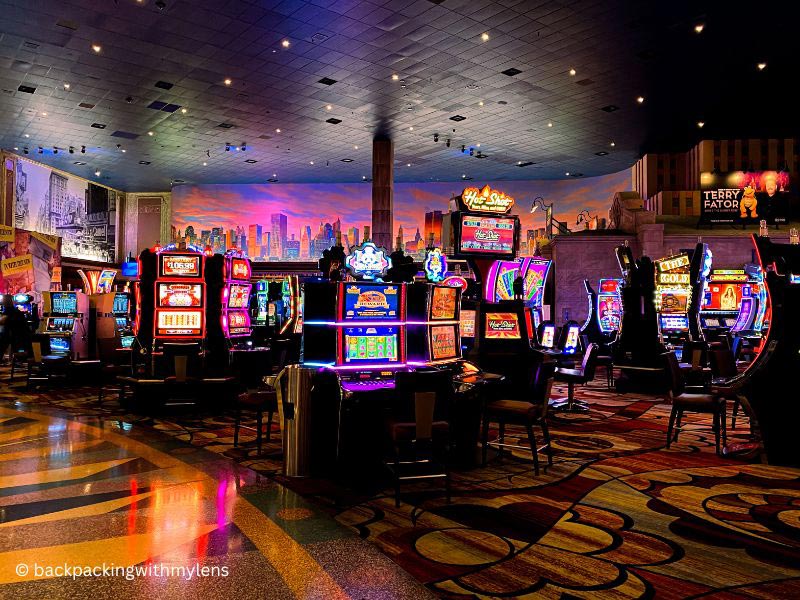
Casino games have long been a fascinating form of entertainment, drawing countless of players from varied cultures around the globe. From the glitzy casinos of the Strip to the busy gambling halls of the Chinese gambling capital, these games serve as a common thread that unites people across various backgrounds. The allure of fortune, strategy, and uncertainty entices not only those hoping to strike it rich but also those in search of a feeling of belonging.
The significance of casino games extends far beyond the gaming floor. They often reflect the cultural standards and principles of the societies in which they flourish. Games such as poker, pontoon, and roulette have integrated into the fabric of mainstream culture, influencing everything from cinema to fashion. https://gk888.sbs/ As we explore this captivating intersection of chance and life, we can gain insights into how these games shape and are influenced by the world around us.
Chronological Development of Gambling Games
The origins of casino activities can be tracked back to historical cultures, where gambling in various forms was widely engaged in. In the East, around 2300 B.C., a form of lottery known as Keno was well-known, while in ancient Rome, soldiers would regularly gamble on the results of their matches. The concept of using chance for amusement and gain progressed over the centuries, leading to the formation of more structured activities. By the final Middle Ages, betting houses started to surface in Europe, notably in Italy, which brought forth early versions of well-liked activities still practiced today.
As gambling gained fame in Europe, the 17th and 18th centuries saw the appearance of gambling establishments as specialized locations for gaming. The initial official gambling house, the Ridotto, was founded in the Venetian city in 1638, featuring activities like Baccarat games and the game Faro. This period marked a crucial shifting point, as gaming venues started to draw not just the high society but also the growing middle class. The sophistication of activities grew, leading to the introduction of new rules and versions that enhanced the experience of players.
In the 19th century, the industrial age and transformations in social norms also changed the environment of gambling games. The arrival of the game of roulette and modern one-armed bandits drew a larger clientele, and gambling establishments became seen as legitimate recreation. This time witnessed the international spread of casino activities, as casinos spread from Europe to the Americas, culminating in the development of the iconic Strip of Las Vegas in the 1900s. The development of gambling activities has persisted into the present day, incorporating new technologies and online services, allowing them available to a global market.
### Cultural Significance in Various Societies
Casino games have deep-rooted social importance across numerous societies throughout the globe. In Las Vegas, the very fabric of the urban landscape is woven around casinos, where gaming is not just a recreational activity but a fundamental aspect of leisure and community interaction. The vivid lights and lively atmosphere attract a vast audience, showcasing how gambling activities can shape local economical structures and cultural uniqueness. This surrounding transforms the notion of relaxation into an immersive event that shapes style, music, and even movies.
Conversely, some communities treat wagering with an air of caution, viewing it through the lens of morality and heritage. A case in point, in numerous Oriental communities, games like Mahjongg and Pai Gow Poker are rich with history and carry significant social meanings. These games are often played during get-togethers and festivities, fostering collective connections and strengthening kinship ties. The act of participating in these games goes past mere amusement, reflecting ethics such as honoring elders and the value of collective enjoyment.
Simultaneously, in Western countries such as Monte Carlo and the Italian Peninsula, games of chance serve as symbols of luxury and elegance. The refined atmosphere of these establishments attracts both tourists and locals, maintaining a sense of prestige and exclusivity. The art of poker and the strategic features of games like baccarat are celebrated, influencing social dynamics and creating an appeal that enthralls a diverse audience. This highlights how gambling can both reflect and shape societal views towards hazard, gain, and community interaction.
Financial Influence and Tourism
Casino games play a crucial role in the financial context of many regions, particularly those that depend significantly on visitor traffic. The revenue produced from gambling establishments fuels local economies, creating employment opportunities not only within the casinos but also but also in related sectors such as hospitality, restaurant services, and entertainment. This influx of tourists, drawn by the attraction of games and the overall gaming environment, stimulates expenditure across multiple local enterprises, contributing to the economic health of the area.
The presence of casinos often leads to the construction of facilities, including lodging, transportation systems, and leisure amenities. These improvements are essential in enhancing the overall visitor satisfaction, making destinations more attractive to visitors. Additionally, many casinos contribute in local communities through sponsorship of events and charitable activities, further embedding themselves into the social fabric of the region. Such investment not only supports economic growth but also fosters a positive reputation of the gambling sector.
In addition, the worldwide appeal of casino games drives competitive tourism, with regions vying to attract players from across the globe. Iconic locations like Las Vegas and Macau have become synonymous with gambling culture, drawing millions each year. This competitive edge encourages innovation and variety within the gambling sector, influencing trends in leisure and hospitality that extend beyond their limits. The consequences of this visitor influx extend wide, impacting local economies and cultural exchanges on a worldwide scale.
